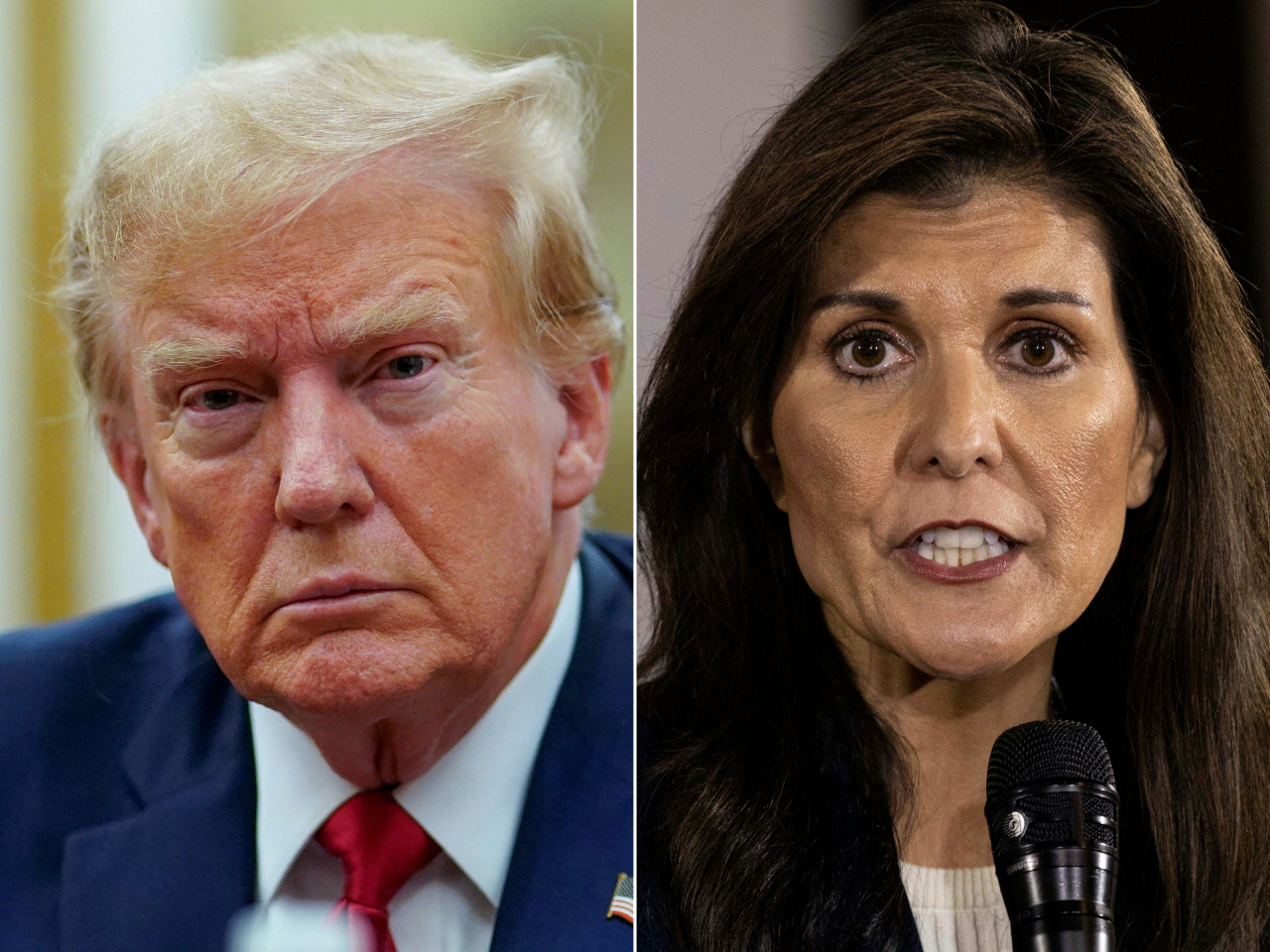Americans cast ballots in Republican New Hampshire primary
By YonhapPublished : Jan. 24, 2024 - 09:19

American voters in the northeastern state of New Hampshire began to cast their ballots in the Republican Party's second presidential nomination contest on Tuesday, with former President Donald Trump angling for another decisive victory following his blowout win in the Iowa caucuses.
The contest to select the Republican standard bearer for the Nov. 5 general election has effectively narrowed to a duel between Trump and former South Carolina Gov. Nikki Haley after Florida Gov. Ron DeSantis dropped out and threw his weight behind Trump.
Ahead of the New Hampshire primary, various polls showed Trump leading Haley by double digits although Haley's campaign has been gathering steam on the back of independents' support, in a boost to her efforts to challenge the former president's frontrunner status.
The ultimate winner in the Republican Party race is expected to face the most likely Democratic flag bearer, President Joe Biden, in November.
Polling places in the Granite State have to start opening at least from 11 a.m and close by 8 p.m. Unlike the caucuses where only registered Republicans can partake, unaffiliated and independent voters can also join the primary.
Up for grabs in the state are just 22 of the total 2,429 Republican Party delegates. To clinch the nomination, a candidate must reach the magic number of 1,215 -- a majority of the total delegates.
Despite the small delegate haul, the Iowa caucuses and New Hampshire primary are at the center of attention as they serve as a crucial gauge of voter sentiment and affect the initial contours of the presidential race.
The New Hampshire primary will be a crucial test of Haley's support as an upset win for her could keep her momentum going forward, while a big loss could lead Trump's supporters to step up pressure on her to end her campaign in the name of party unity.
In a Sunday campaign rally, Trump stepped up his attack on Haley, calling her "RINO," or Republican in name only -- a term Trump and his backers have used to refer to his opponents within the Republican Party.
"Here in New Hampshire, Nikki Haley has made an unholy alliance with RINOs, never Trumpers, Americans for no prosperity," Trump said.
He went on to claim that people behind Haley are "pro-amnesty," "pro-China," and "pro-open borders."
"Our movement is pro-borders, pro-jobs, pro-freedom and 100 percent pro-America," he said. "We are the party of common sense."
Haley hit back later in a stump speech on Monday, saying that "every single thing" that Trump said about her has been a "lie." She also criticized him as being dogged by "chaos."
"I voted for Donald Trump twice. I was proud to serve America and his administration," the former ambassador to the U.N. said. "But rightly or wrongly, chaos follows him and we can't have a country in disarray and a world on fire and go through four more years of chaos."
According to an InsiderAdvantage poll done on Sunday, Trump's support was tallied at 62 percent while Haley's stood at 35 percent. The survey of 850 likely voters in the New Hampshire Republican Party primary had a margin of error of 4.32 percent.
The latest Suffolk University/NBC10 Boston/Boston Globe tracking poll also showed Trump was the clear frontrunner with 60 percent support versus Haley's 38 percent. Conducted on 500 likely Republican primary voters from Jan. 21-22 had a margin of error of 4.4 percent.
Democrats also went to polling stations for their party's contest in New Hampshire, but the state's race was seen as symbolic as Biden did not appear on the ballot with the party having decided to hold the first primary in South Carolina on Feb. 3.
The Republican and Democratic Parties will announce their ultimate standard-bearers at conventions in Milwaukee, Wisconsin, in July and in Chicago, Illinois, in August, respectively, though their flag bearers may be all but determined after "Super Tuesday" contests on March 5.
On Super Tuesday, nomination contests will take place in 16 states and territories, including the crown jewels of California with 169 delegates and Texas with 161. On the single day, 874 delegates, more than a third of the Republican total, are at stake. (Yonhap)



















